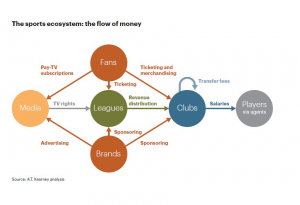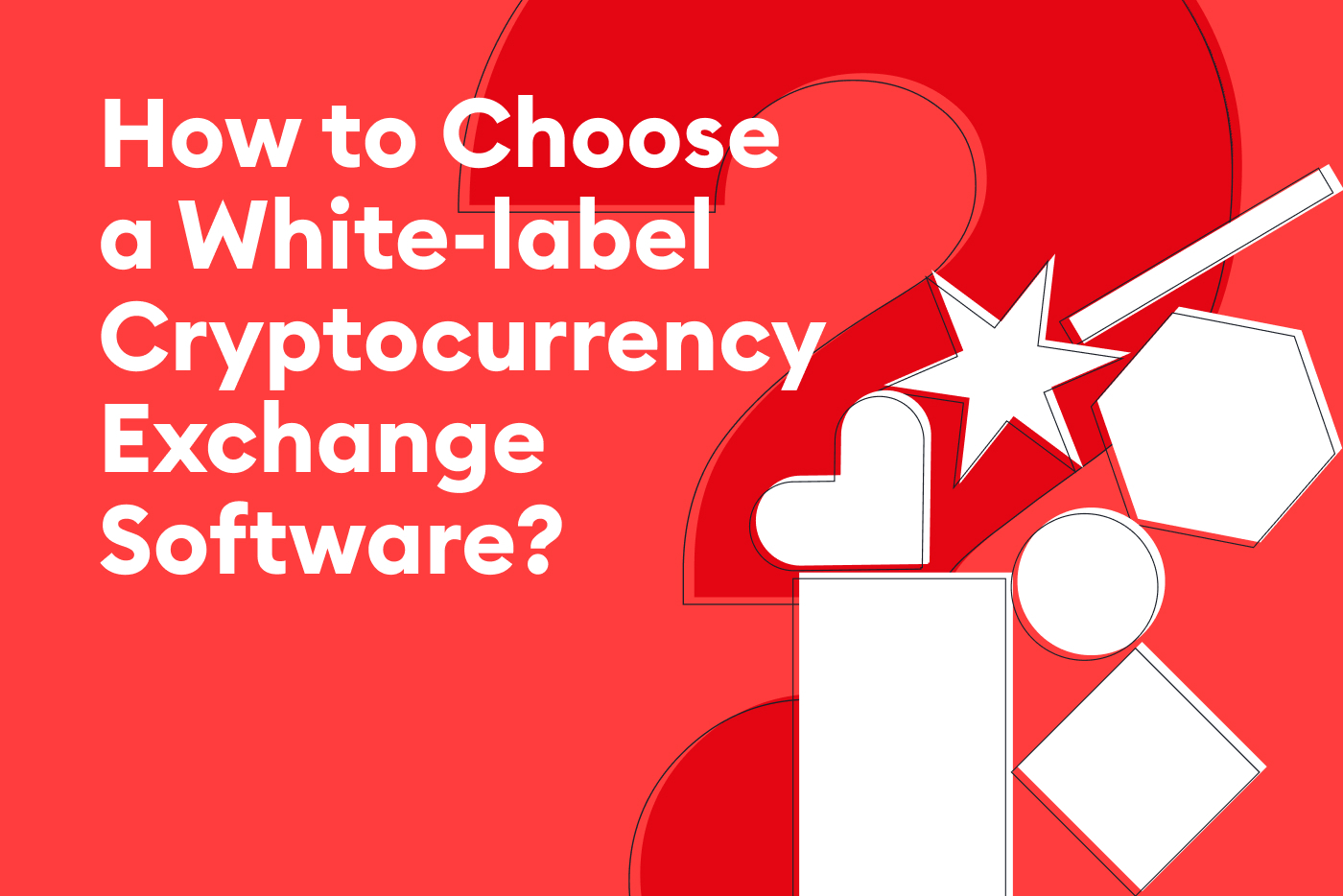
Asset tokenization
Asset tokenization has been breaking the ground before its feet with every step it takes. A blockchain application technology (DApp) once thought of as there mainly to improve current processes and provide value in an already crowded space (traditional finance), has displayed its potential and countless uses once again. Despite being initially marketed to tokenize illiquid assets like real estate, art, and others, it has evolved to include almost every conceivable asset. This article explores tokenization in the sports industry and its potential benefits.
Although we have already introduced the concept of asset tokenization [1], we’ll do a quick review in order to keep this article friendly for every reader.
Tokenization is the “bridge between real-world assets and their trading, storage and transfer in a digital world.” It is the digital representation of a specific right over a real-world asset. There are many types of tokens that can be sorted into non-exclusive categories, including security, platform, transactional, utility, and governance tokens. When discussing security tokens, we should keep in mind the subtle distinction between security tokens and tokenized securities, with the main difference being whether they’re natively issued on a blockchain or not. On this occasion we will refer to tokenized securities; blockchain-embedded representation of a real world security. This category includes every asset that exists outside of the blockchain and that is subsequently tokenized.
Application: Tokenization in the sports industry
Apart from the asset categories used to describe tokenization (see above), the sports industry is a not-so-obvious one that has been leveraging its benefits. The sports industry has historically moved millions of people worldwide, and has grown in most of its metrics for the past decade [2], but as new situations arise (pandemic, change in the average age and habits of consumers, among others), new challenges and threats must be overcome in order to continue its success.
Its ecosystem is not a simple one, characterized by various flows among many participants. Among these are the loyal fanbase, clubs, players, sponsors, leagues, brands, media.

The sports ecosystem: the flow of money [3]
It is also potentially a sizable market. In 2018, the global sports market was valued at approximately US$ 471 billion. In contrast, the market was valued at 324 billion U.S. dollars in 2011, showing a CAGR of 5.49% for the last ten years. The United States held a 32.5 percent share of the global sports market in 2018 [4].
Windows opening for the ball
Some interesting tokenization plays in sports include the utilization of tokens and smart contracts in these next categories [5]:
-
Fan experience
-
- Fan engagement: Tokens could be used for discounts, presale rights, voting rights, network participation (polls for example), invitations to specific stadium areas, meeting with players, loyalty programs, etc.
- Tokenized governance solutions: For acting on social issues that matter for token holders like racism, environmental issues, LGBQT rights, treatment of female fans in stadiums, and others [6].
-
Processes – Administrative – Financials:
-
- Performance and transfer record: Developing tracking systems for players, getting reliable monitoring, storing data on payments, performance and/or injuries. Also, useful for tokenized salary payments as well as incentive-based compensation. This carries an implicit benefit for tax, audit, and compliance.
- Medical data record: Immutable data records on health issues and interventions.
- Player tokenization: Though currently applied on solidarity mechanisms, down the line it’s possible for the entire player contract, marketing and partnership agreements to be tokenized. It can also be used to exploit currently untapped non-professional lines like college sports by helping in supporting young athletes. Players information can be stored in blockchain’s immutable ledger since early stages, through the use of wearables.
- Tokenized crowdfunding: Security Token Offerings for raising funds when the traditional system (financial institutions) is not enough.
- In stadium payment systems: These can be used for concessions and merchandise payments. By gathering data, it can also help clubs to get a better understanding of their fan base.
- Tokenized personal seat licenses that could enable season ticket holders to rent out their seat for separate matches in a safe manner in terms of tracking individual attendance and payment.
- Tokenized revenue distribution schemes: In order to facilitate the flows within sports organizations (see chart above), automated and transparent revenue distribution schemes can be based on tokenization. Revenues could be automatically distributed between league, clubs, and potentially athletes, using data from various sources to account for each entity’s contributions, based on transparent stakeholder governance.
-
Commerce
-
- Digital collectibles: Powered by Non-Fungible Tokens (NFT), digital collectibles are usually “individually unique and limited in quantity,” and can have these characteristics verified by the immutability of the blockchain they are based upon.
- Ticketing w/ tokens: For events with high demand, high resale potential, and control over who gets access to re-sell your tickets (over 2yr market). Blockchain registration of ticket purchases ahead of games or season takes would allow fans to exchange their tickets on a token-to-token basis, avoiding the secondary market of selling tickets or even purchasing fake tickets [7].
Current state of tokenization in sports
People in the sports business are starting to understand the benefits that tokenization can provide to their organizations and business models. European football clubs in different leagues such as Barcelona, Juventus, Manchester United, and others are adopting tokenization schemes for specific purposes (see tokenization plays). Some South American clubs took a first incursion as well [8].
Tokenization of sports with SCALABLE
At SCALABLE we believe that blockchain technology has the potential to change every major aspect of how we interact with each other. With tokenization as one of its pillars, the revolution gains traction and sets to promote advances for improving our society. The main (or only) question is what we can do to support it. Remaining on the sidelines can only result in being left-out in the long term. Coming back to the sports analogy, we can ask ourselves, ‘How come we (the participants) can not be subject to adopting new technologies, when the sport itself is (smart ball system, hawkeye, goal ref, VAR)?”
Global sports industries are poised to be disrupted by an influx of capital resulting from the tokenization of practically every facet of the industry. For investors, this represents an opportunity to invest in players with significant upside earnings potential and influence, gaining exposure to an industry set to develop at a rapid pace. Get involved in the tokenization of sports by contacting Scalable here.
References
[1] “DeFi Apps: Asset Tokenization .” Resources, Scalable Solutions, 28 Oct. 2020, scalablesolutions.io/news/defi-apps-asset-tokenization/.
[2] “Business Wire’s Website Is Currently Unavailable.” Business Wire, 14 May 2019, www.businesswire.com/news/home/20190514005472/en/Sports—614-Billion-Global-Market-Opportunities.
[3] @kearney. (2018, March 4). “Are you a #Sports fan? In the race for eyeball attraction and premium #content, Sports is a grail to #media and new #digital players : one should expect more money to fuel the sports ecosystem. Read more: http://bit.ly/2EXfS3S” [Tweet]. https://twitter.com/kearney/status/970245010342936577?lang=es
[4] “Sports Market Size Worldwide 2018.” Statista, July 2019, www.statista.com/statistics/1087391/global-sports-market-size/.
[5] Euler, Thomas. “The Tokenization Playbook for the Sports Industry.” Medium, Liquiditeam, 4 June 2020, medium.com/liquiditeam/the-tokenization-playbook-for-the-sports-industry-guide-blockchain-busines-87da13d33dfe.
[6] Law, Joshua. “How Bahia Became the Most Progressive Football Club in Brazil.” The Guardian, Guardian News and Media, 13 Nov. 2019, www.theguardian.com/football/2019/nov/13/bahia-progressive-football-club-brazil-prices-fans-political-issues-love.
[7] “Blockchain for Ticketing: A Complete Guide.” Event Manager Blog, EventMB, 29 Oct. 2020, www.eventmanagerblog.com/blockchain-ticketing.
[8] Gregorio, Rafael. “Vasco Da Gama e Mercado Bitcoin Lançam Token Para Investir Em Direitos De Jogadores.” Valor Investe, 5 Nov. 2020, valorinveste.globo.com/mercados/cripto/noticia/2020/11/05/vasco-da-gama-e-mercado-bitcoin-lancam-token-para-investir-em-direitos-de-jogadores.ghtml.
Sources
Ashworth, Will. “How the Tokenization May Level the Sports Playing Field.” Nasdaq, InvestorPlace, 17 Aug. 2020, www.nasdaq.com/articles/how-the-tokenization-may-level-the-sports-playing-field-2020-08-17.
Gwi. “Sports Around the World, Consumer Viewing Behavior on TV & Online.” GlobalWebIndex, 2020, www.globalwebindex.com/reports/sports-around-the-world.
“Top 5 Blockchain Use Cases in Sports and Esports.” Protokol, 28 Oct. 2020, www.protokol.com/insights/top-5-blockchain-use-cases-in-sports-and-esports/.
“Understanding Sports Tokenization from Player’s Contracts, Team Ownership & Arena Revenues.” STO Search & Filter, 10 Mar. 2020, www.stofilter.com/understanding-sports-tokenization-from-players-contracts-team-ownership-arena-revenues/.
“World Football 2018.” Nielsen Sports, 2019, nielsensports.com/reports/world-football-2018/.

